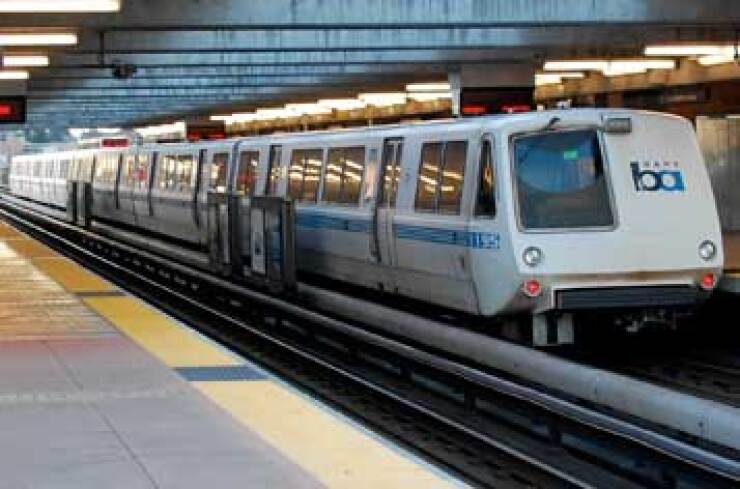
SAN FRANCISCO - Fitch Ratings upgraded nearly $730 million of bonds issued by the San Francisco Bay Area Rapid Transit District to AA-plus from AA.
The district operates the Bay Area Rapid Transit, a rail rapid transit system connecting San Francisco with cities in the East Bay and suburbs in northern San Mateo County.
The Sept. 11 upgrade applies to the system's sales tax revenue bonds.
Fitch said the upgrade is based on high maximum annual debt service coverage of 3.78 times and a strong tax base and economic growth prospects in the three counties BART serves, which support bond repayment.
"Above-average employment growth in each of the counties continued in 2013 led by the City and County of San Francisco at 2.9%, and Contra Costa and Alameda counties at 2.3%," analysts said in a report.
In addition, BART's ridership has increased in recent years—by 6.5% or more in both fiscal 2012 and 2013, which is well above the historical average growth rate of 2.5%.
The system's sales tax revenue bonds are secured by a first lien on 75% of the half cent BART sales and use tax levied in the system's three counties.
Fitch considered the counties' tax base to be healthy, benefiting from the broad and diverse regional economy, its increasing population and labor force, and high wealth levels.
Fitch said the upgrade also reflects BART management's commitment to maintain relatively low levels of debt by cash-funding capital improvements, including the vehicle replacement program.
"The system is positioned to continue its sound financial trends due to increased ridership, the board's demonstrated willingness to increase fares, and rising tax revenues," analysts said. "However, budgetary pressures are expected to remain due to rising labor costs and significant capital needs."
BART's capital needs include the complete replacement of its current vehicle fleet, various system expansion projects, and the maintenance and upkeep of the aging system's infrastructure.
Approximately half of the $9.6 billion 10-year capital plan is unfunded, although management plans on meeting those needs through operating funds and grants from local, state, and federal sources.
BART could also be pressured by increased labor costs after its current labor contract expires in 2017.





